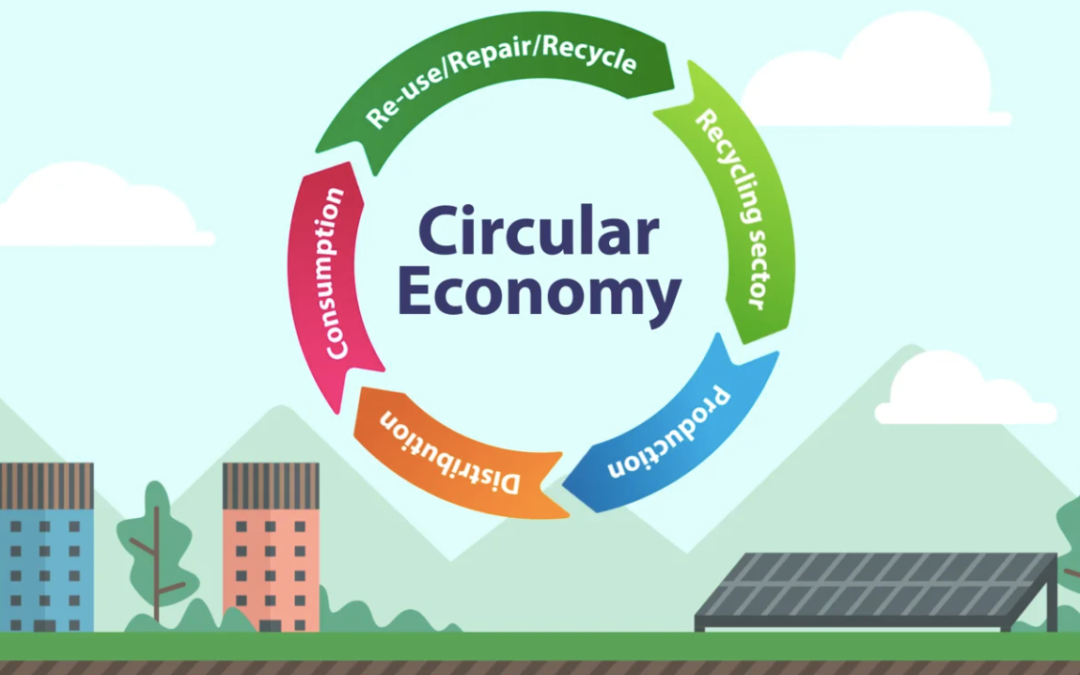Greenwashing and guilt by association hit sustainability claims
By Chris Wheal
February 21, 2024

A clampdown on greenwashing and increased scrutiny of companies' lobbying is upping the ante when it comes to sustainability
Greenwashing is under fire. Even a questionable commitment to sustainability can make firms a target for negative publicity. Now there’s both a legislative and lobbying angle to the issue of firms flag-waving their green credentials but flagging when it comes to delivery.
Last week the European Parliament finalised EU anti-greenwashing legislation. This will mean companies wishing to make environmental claims will have to submit them for verification before making them public.
The Parliament’s rapporteur Andrus Ansip for the Internal Market Committee said: “Studies show that 50% of companies' environmental claims are misleading.”
Supply chains to products to end of life
Aimed mainly at products sold direct to consumers complete with hyped green claims that cannot stand up to scrutiny, the new rules will have a wider effect. In the series of amendments agreed by MEPs it became clear that more general claims relating to individual products, to companies or even to sectors as a whole, will be scrutinised and require evidence to give claims credibillity.
A spokesperson for the EU told Pharma News: “This directive does not mention any products or product categories specifically. It only concerns claims that companies voluntarily choose to make in order to show their environmental efforts and to gain a competitive advantage over other companies.”
And it’s not just manufacturing or distribution – it stretches down the supply chain and beyond to waste and recycling. The legislation covers:
- Value chain – all activities and processes that are part of the life cycle of a product or activity of a trader, including remanufacturing, reuse, recycling and end-of-life.
- Environmental performance – the performance of a certain product or product group or trader or sector related to the environmental aspects or environmental impacts of that product or product group or the activities of that trader or sector.
- Environmental impact – any measurable change to the environment, whether positive or negative, that wholly or partially results from a trader’s or sector’s activities or from a product or product group during its life cycle.
Fines of 40% of turnover
Claims sent for verification will be approved or rejected within 30 days. But any company found guilty of breaking the rules “may be excluded from procurements, lose their revenues and face a fine of at least 4% of their annual turnover”.
Having already attacked offsetting claims – rather than carbon reduction programmes – the EU has gone further. “Companies may still mention offsetting schemes if they have already reduced their emissions as much as possible and use these schemes for residual emissions only. But the carbon credits of the schemes must be certified, as established under the Carbon Removals Certification Framework,” it says.
The European Parliament’s rapporteur Cyrus Engerer for the Environment Committee said: “It is time to put an end to greenwashing. Our agreement ends the proliferation of deceitful green claims which have tricked consumers for far too long. It also ensures that businesses have the right tools to embrace genuine sustainability practices. European consumers want to make environmental and sustainable choices and all those offering products or services must guarantee that their green claims are scientifically verified.”
The EU activities came hot on the heels of a report questioning whether companies’ green claims stood up to scrutiny if they remained members of trade associations and other groups that lobbied against sustainable ideals.
Guilty by Association
The Planet Tracker report Guilty by Association looked at the climate transition mismatch between companies and their trade associations.
The report said: “Corporates should scrutinise their membership of associations which do not align with their own stated goals. At the very least, this misalignment should be explained.”
One positive was that Planet Tracker cited Bayer as a good example of a firm tackling the issue. “Others should follow promptly, as regulators could view this inconsistency as a form of greenwashing. Investors need to clarify this strategic confusion; they need to know whether the corporate’s strategy is to align with the Paris Agreement or to lobby against a decarbonisation transition. Financial markets need to understand the financial implications of these different pathways.”
Planet Tracker said: “The membership of companies in trade associations has emerged as a critical area of concern, particularly when corporate management teams claim to be supportive of lowering their carbon footprint but are members of associations that appear to be at odds with the goals set forth in the Paris Agreement.”
Five steps to accountability
Planet Tracker set out how companies should tackle membership bodies that still lobby against measures to tackle climate change.
- Conduct an audit: Perform a thorough assessment of trade associations’ positions on climate change compared with internal company positions. Make audit results public and commit to regular re-audits.
- Develop a strategy: Armed with information on misalignment, develop a strategy for self-correction. Set explicit criteria for leaving or staying within an association and define success metrics.
- Speak out: Publicly express disagreement when a trade association’s stance contradicts company positions on climate. Hold associations accountable for their actions.
- Leave if necessary: Consider disassociation if attempts to align with trade associations prove ineffective. Follow the criteria outlined in the company’s strategy.
- Be transparent: Publicly disclose positions, actions, outcomes and all trade association memberships. Transparency is crucial for corporate leadership.
On Bayer’s action, the report noted: “Bayer’s recent Industry Association Climate Review assesses the company’s alignment with 63 associations. The key findings highlight a 36% overall improvement in aligning with trade associations on climate policies. Also, the report indicates a positive trend with a significant reduction in ‘no position’ instances and a slight increase in ‘partial misalignment’, hinting at progress in policy development.”
Bayer has said it ultimately will leave an organisation that does not align with its own environmental aims.
Sustainability issues have never been under the spotlight as intensely.
Do you think the measures are fair or too big a burden? Tell us about your sustainability programme.







.png)